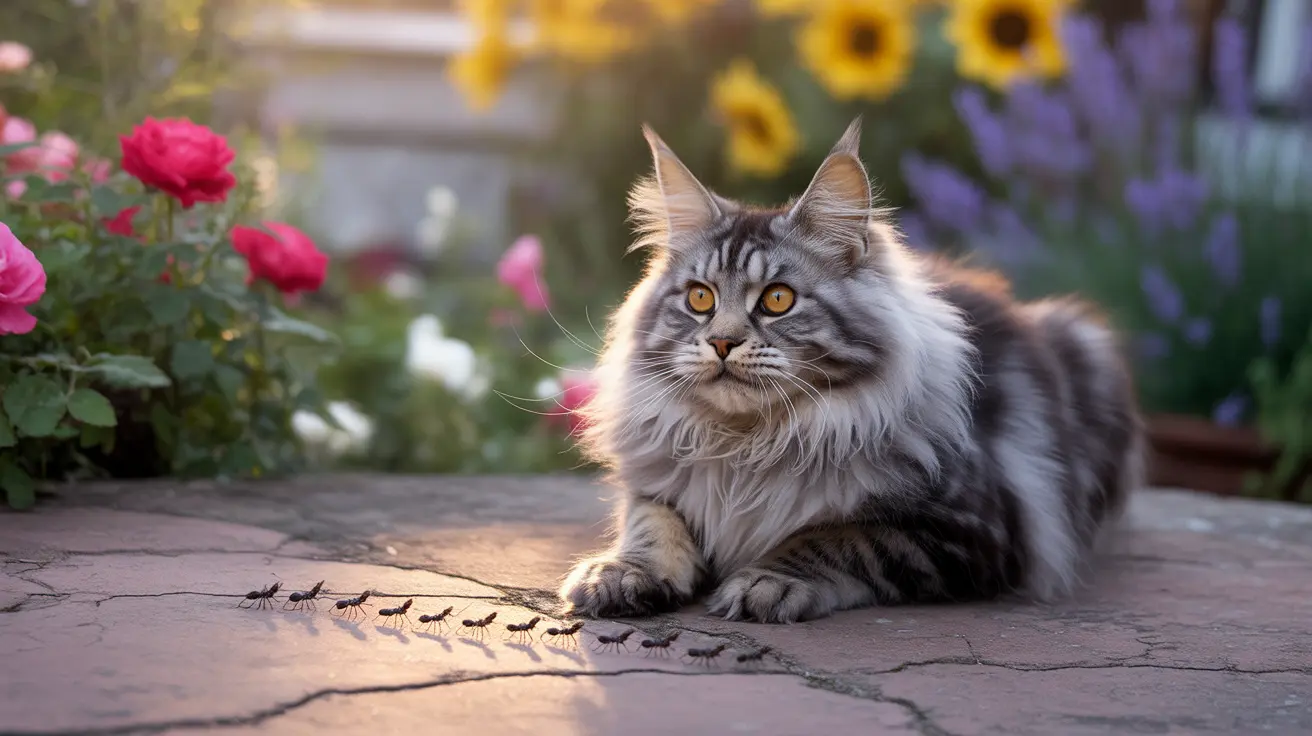Understanding Why Cats Eat Ants
Cats are natural hunters, and their predatory instincts often lead them to chase and catch small moving creatures, including ants. This behavior is typically driven by:
- Natural hunting instincts
- Curiosity about movement
- Play behavior
- Occasional dietary exploration
Safety Considerations for Cats and Ants
Most common household ants are generally not toxic to cats, but there are important safety factors to consider:
Common Household Ants
Regular black or brown household ants typically pose minimal risk to cats. These insects may cause mild mouth irritation but are usually harmless when consumed in small quantities.
Dangerous Ant Species
Fire ants and other aggressive species can be hazardous to cats due to:
- Painful stings containing formic acid
- Potential allergic reactions
- Risk of multiple stings if consumed
- Swelling and inflammation in the mouth
Potential Health Risks
While occasional ant consumption is usually safe, several risks warrant attention:
Pesticide Exposure
The most significant danger comes from ants that have been exposed to pesticides. Cats who eat these ants may experience:
- Nausea and vomiting
- Seizures
- Respiratory distress
- Severe illness requiring immediate veterinary care
Physical Reactions
Direct contact with certain ants can cause:
- Mouth irritation
- Excessive drooling
- Swelling of the tongue or throat
- Difficulty eating or drinking
Prevention and Protection
To keep your cat safe from ant-related issues:
- Keep your home free from ant infestations
- Avoid using toxic pest control methods where cats can access
- Monitor outdoor activities
- Provide alternative forms of enrichment and play
When to Seek Veterinary Care
Contact your veterinarian immediately if your cat shows these symptoms after eating ants:
- Excessive drooling
- Difficulty breathing
- Swelling around the face or mouth
- Vomiting or diarrhea
- Lethargy or unusual behavior
Frequently Asked Questions
Is it safe for my cat to eat ants from around the house?
While common household ants are generally not toxic, it's best to discourage this behavior as some ants can bite or sting, and there's always a risk of pesticide exposure.
What are the risks if my cat eats fire ants or ants exposed to pesticides?
Fire ants can cause painful stings and allergic reactions, while pesticide-exposed ants can lead to serious poisoning symptoms including seizures, respiratory issues, and even death in severe cases.
Why do cats like to eat ants, and is it harmful or beneficial to their health?
Cats are attracted to ants primarily due to their movement and hunting instincts. While ants contain some protein, they provide no significant nutritional benefit and can potentially cause harm.
How can I protect my cat from ant poisoning caused by insecticides or ant baits?
Use pet-safe pest control methods, keep ant baits and pesticides out of your cat's reach, and maintain clean feeding areas to prevent ant infestations.
What symptoms should I watch for if my cat has eaten ants and might be sick?
Watch for excessive drooling, difficulty breathing, swelling around the face or mouth, vomiting, lethargy, or any unusual behavior. Seek immediate veterinary care if these symptoms occur.
Remember, while most ant encounters won't harm your cat, it's important to stay vigilant and take appropriate precautions to ensure your pet's safety. If you're ever concerned about your cat's interaction with ants or other insects, don't hesitate to consult with your veterinarian.






